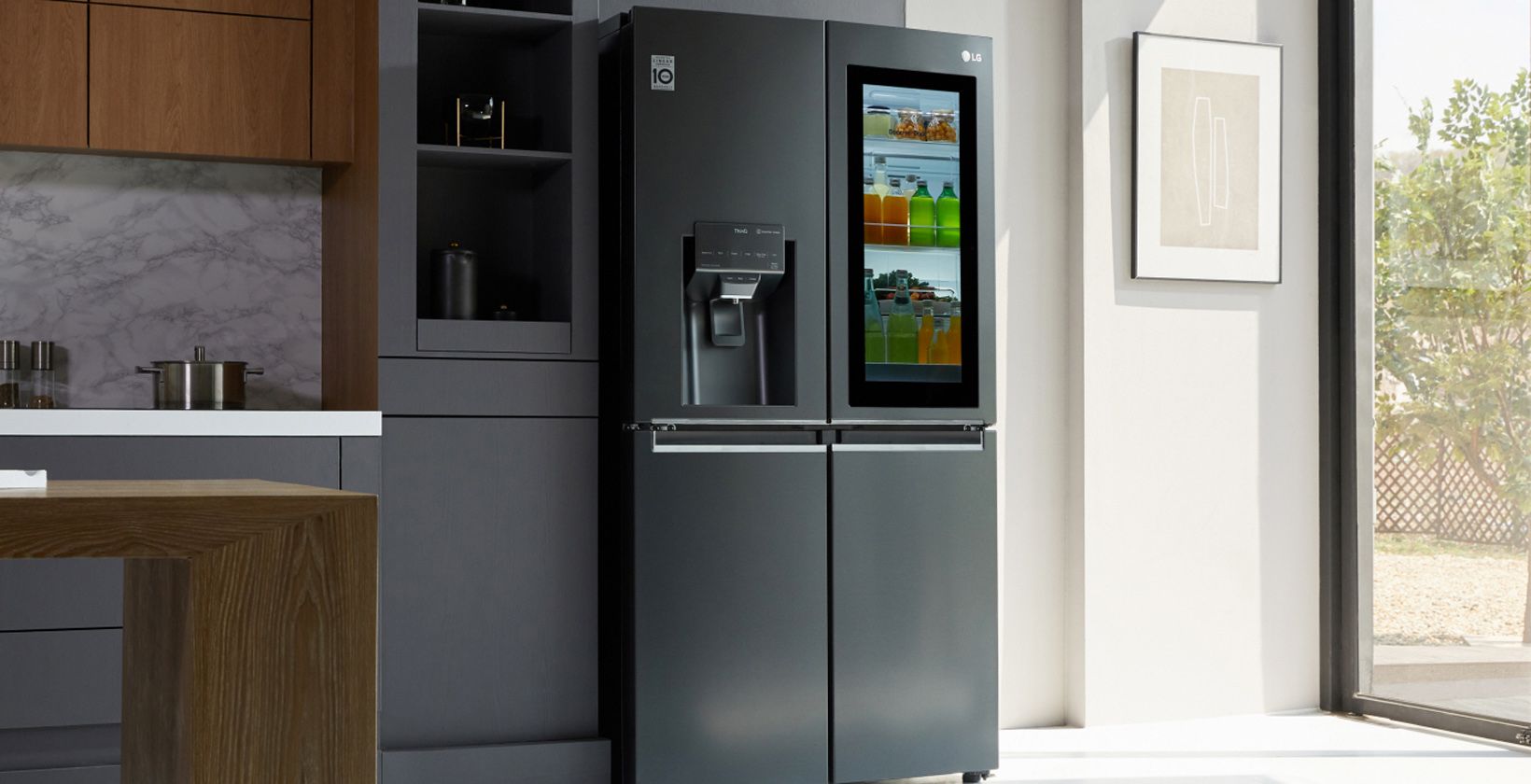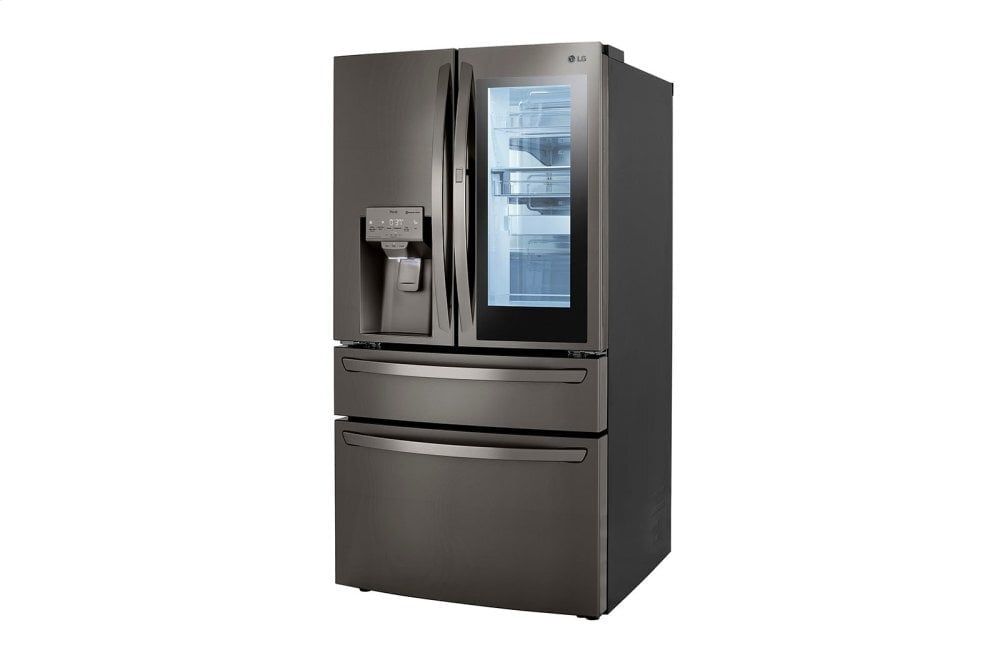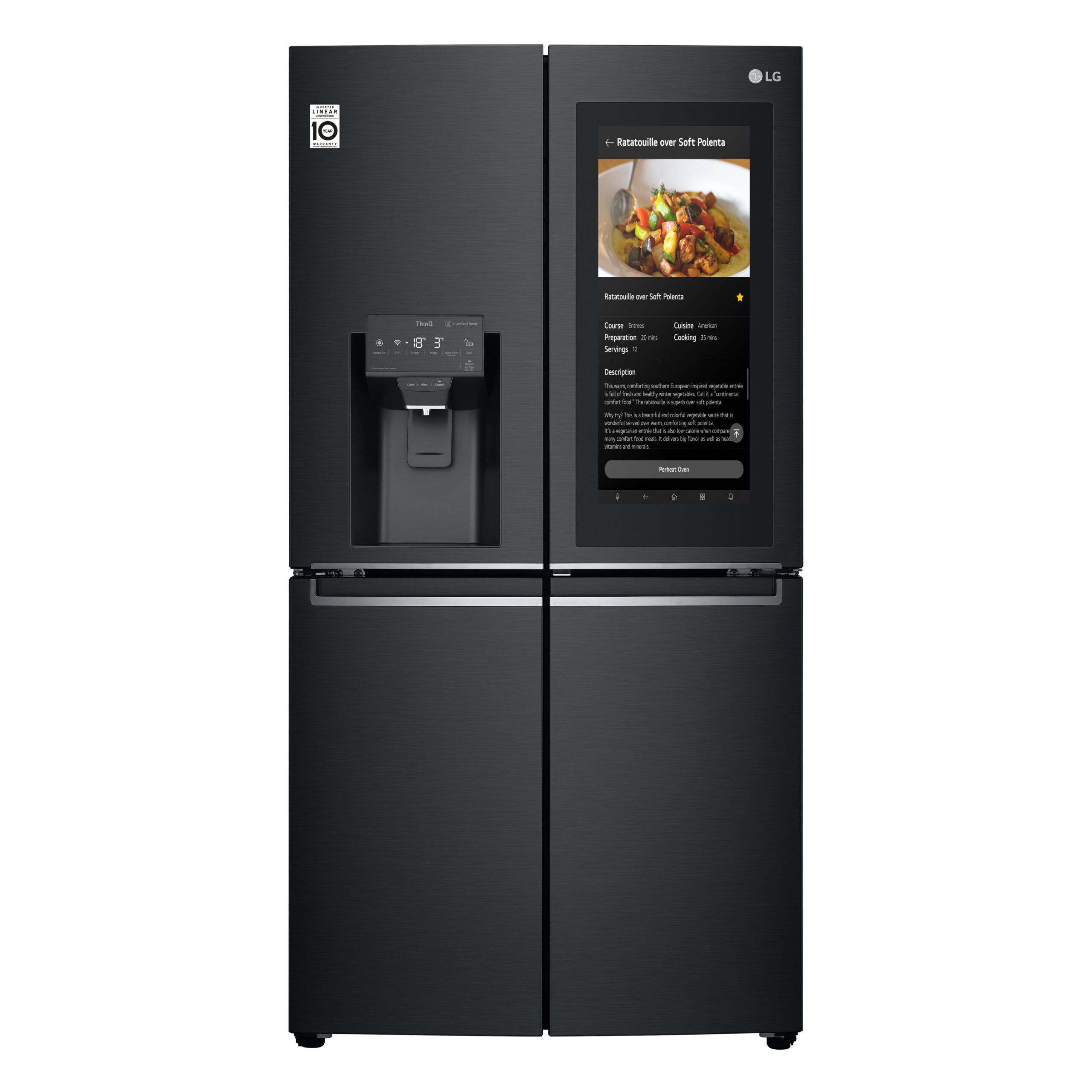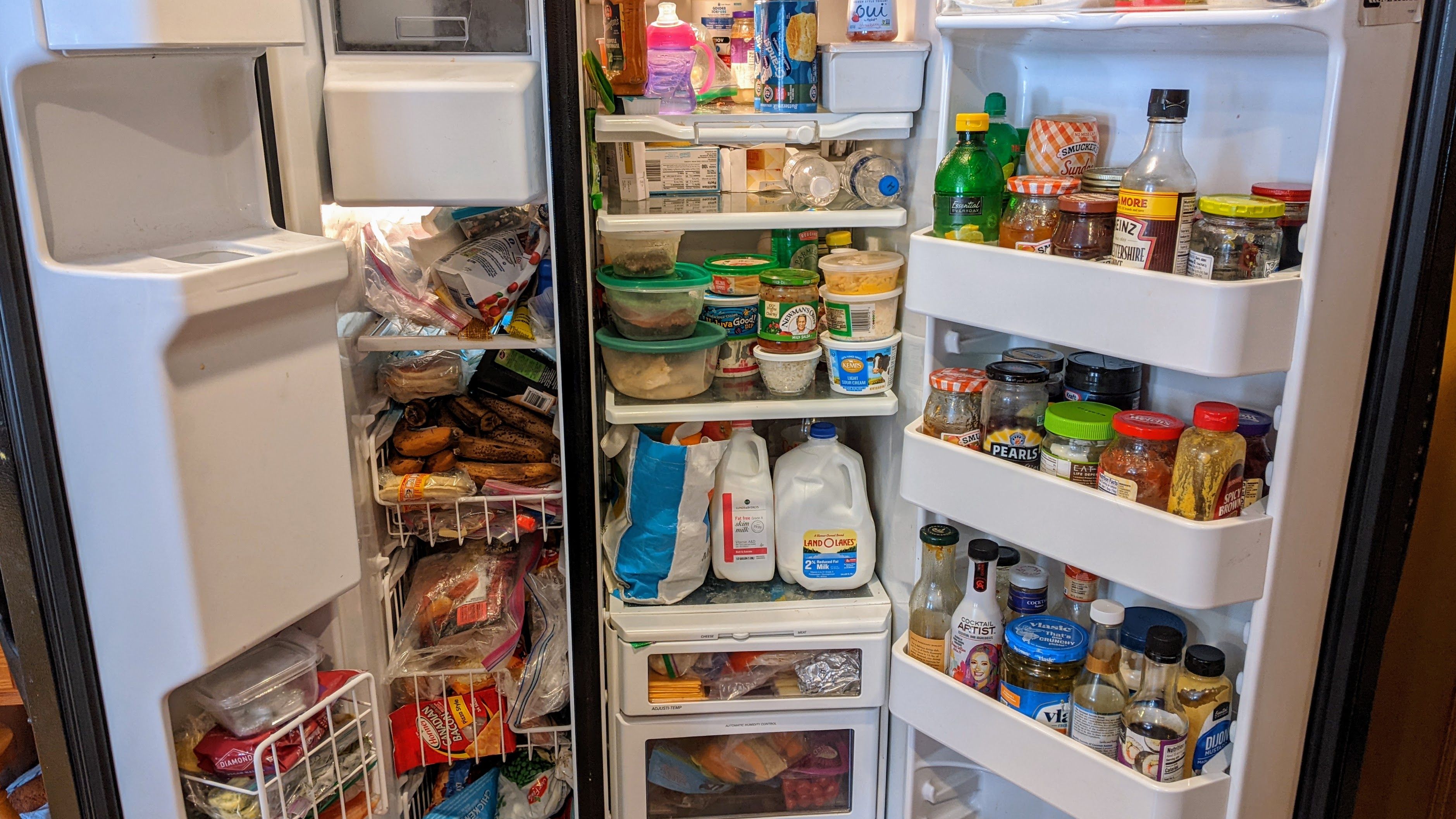Smart appliances are all the rage, from smart ovens to smart dishwashers to smart refrigerators. In spite of all the hype, however, today's smart refrigerators aren't as smart as other smart appliances—and might never be.
How Smart Are Smart Refrigerators Today?
Smart refrigerators today aren't really that smart. Unlike other smart kitchen appliances that can turn themselves on or off under specific conditions or trigger specific actions when necessary, today's so-called smart refrigerators do basically the same things refrigerators have done for the past 75 years, albeit with a few added bells and whistles.
For example, LG's ThinQ smart refrigerators include a variety of top-of-the-line features, including dual icemakers with Craft Ice, LED internal lighting, and more. The InstaView Door-in-Door feature lets you see inside the refrigerator without opening the door, which is nice.
Select models feature Wi-Fi integration with LG's ThinQ app, which lets you change the temperature or order up extra ice from the ThinQ mobile app or your Amazon Alexa or Google Home device. You can also get notifications, via the app, if somebody leaves the refrigerator door open.
While all of these features are nice, none are particularly "smart." It's a bit of a letdown when you're spending $4,000 or more on a high-end refrigerator to find out the only "smart" thing it does is supercharge the icemaker.
Samsung's line of Family Hub smart refrigerators offer a few more smart features. In addition to the LED lighting and smart cooling, these refrigerators offer a large LED screen on the outside of the refrigerator door.
The refrigerator can be connected, via Wi-Fi, to other smart devices. This lets you see who's at your front door (via your Ring doorbell), control your home's lighting (via Philips Hue), monitor other rooms in your house (with Arlo webcams), adjust your home's temperature (with your Nest thermostat), and control other smart devices with voice commands (via the built-in Amazon Alexa).
The Family Hub can even mirror what's showing on your Samsung smart TV and play music from Pandora and Spotify.
Again, this is all very nice but really nothing more than you can do with a low-priced Amazon Echo Dot. That said, the Family Hub gets a little closer to being a true smart refrigerator by adding a Quick View camera inside the fridge. This lets you use the in-door display or the Family Hub mobile app to view what's inside.
The Family Hub app lets you plan meals and create shopping lists, but you have to do those things manually---the app doesn't inventory what's inside your refrigerator or generate shopping suggestions.
What Should a Future Smart Refrigerator Do?
Simply adding Wi-Fi or Alexa capabilities doesn't make a refrigerator smart. A true smart refrigerator should be able to do a lot more for you---and do it automatically.
Putting one or more cameras inside the refrigerator, as Samsung does in its Family Hub models, could result in more functionality, especially when paired with artificial intelligence (AI) technology. Imagine a smart refrigerator that:
- Knows and alerts you when you run out of a given item.
- Knows and alerts you when foods expire.
- Learns what foods you like and automatically generates grocery lists, and then automatically sends that grocery list to your local grocery for automatic fulfillment and delivery.
Thinking further outside the box, imagine a smart refrigerator connected to a smarter TV than the one you have today. Envision watching a cooking show on the Food Network and seeing a recipe you like. You tell your smart TV to save the recipe and send it to your smart refrigerator.
The fridge stores the recipe and determines whether you have all the ingredients necessary. If you don’t, it either tells you what you need or automatically adds those items to the next grocery list. And all this happens before the show you’re watching goes to commercial.
Even better, imagine a smart refrigerator that figures out what to cook, based on what ingredients you have on hand and a database of recipes. That would take all the guesswork out of meal planning.
The future is limitless---to a point.
Why We May Never See True Smart Refrigerators
There are a couple of reasons why we may never see that level of intelligence in a smart refrigerator---at least in the near future. It comes down to a combination of available technology and real-world usage.
Consumers Are Too Disorganized
Remember that Samsung refrigerator with the built-in internal camera? To use that camera to automatically determine what food you have on hand, the contents of your refrigerator must be easy to see and, ideally, logically organized.
Unfortunately, most people simply aren't that organized. In fact, the average American refrigerator is extremely cluttered with items stuffed in wherever they fit. There's no way even the smartest smart camera aided by advanced AI technology could make heads or tails out of the typical disorganized refrigerator. It's almost impossible just to find the mustard!
Products Aren't RFID-Enabled
A solution to the cluttered refrigerator dilemma is to keep track of items the same way that some cashierless grocery stores do, using RFID technology. This approach places RFID (short for Radio Frequency Identification) tags, with built-in low-frequency radio transmitters, on all items you buy from the grocery store.
The future smart refrigerator would have an RFID reader built-in and be able to sense which RFID-tagged products are inside and which need to be reordered.
The only problem with this approach is that the majority of products on traditional grocery store shelves today do not have RFID tags. The use of this technology would have to become universal for it to be effectively used in RFID-enabled smart refrigerators.
Today's Smart Refrigerators: Smart Enough or Not?
The reality is that today's smart refrigerators fail to live up to the smart appliance hype. Adding Wi-Fi and Amazon Alexa to a high-end refrigerator do not a true smart appliance make.
If you want a true smart refrigerator, capable of monitoring food usage and automatically generating grocery lists, you'll probably have to wait awhile. At least until smart technology catches up to the disorganized ways most people use their refrigerators.




